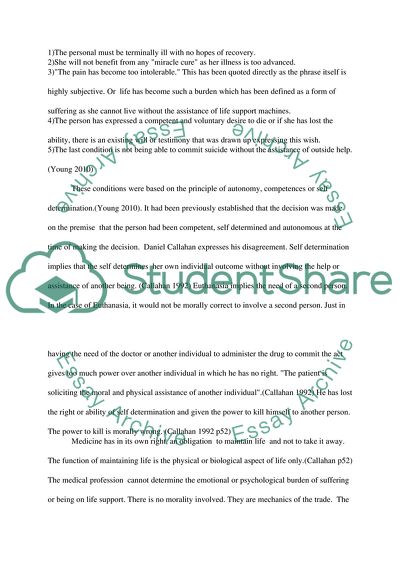Cite this document
(In What Circumstances Is Voluntary Euthanasia Morally Permissible Essay, n.d.)
In What Circumstances Is Voluntary Euthanasia Morally Permissible Essay. https://studentshare.org/social-science/1751764-1in-what-circumstances-if-any-is-voluntary-euthanasia-morally-permissible-refer-to-the-arguments-of-james-rachels-and-daniel-callahan-in-your-answer-and-include-your-own-opinion
In What Circumstances Is Voluntary Euthanasia Morally Permissible Essay. https://studentshare.org/social-science/1751764-1in-what-circumstances-if-any-is-voluntary-euthanasia-morally-permissible-refer-to-the-arguments-of-james-rachels-and-daniel-callahan-in-your-answer-and-include-your-own-opinion
(In What Circumstances Is Voluntary Euthanasia Morally Permissible Essay)
In What Circumstances Is Voluntary Euthanasia Morally Permissible Essay. https://studentshare.org/social-science/1751764-1in-what-circumstances-if-any-is-voluntary-euthanasia-morally-permissible-refer-to-the-arguments-of-james-rachels-and-daniel-callahan-in-your-answer-and-include-your-own-opinion.
In What Circumstances Is Voluntary Euthanasia Morally Permissible Essay. https://studentshare.org/social-science/1751764-1in-what-circumstances-if-any-is-voluntary-euthanasia-morally-permissible-refer-to-the-arguments-of-james-rachels-and-daniel-callahan-in-your-answer-and-include-your-own-opinion.
“In What Circumstances Is Voluntary Euthanasia Morally Permissible Essay”. https://studentshare.org/social-science/1751764-1in-what-circumstances-if-any-is-voluntary-euthanasia-morally-permissible-refer-to-the-arguments-of-james-rachels-and-daniel-callahan-in-your-answer-and-include-your-own-opinion.


